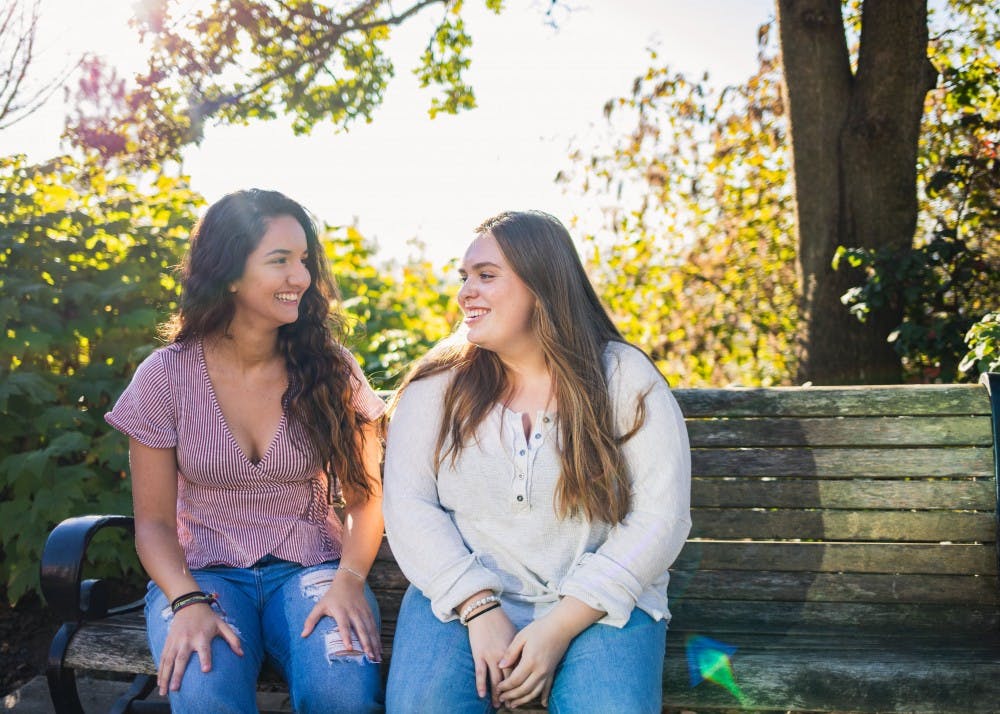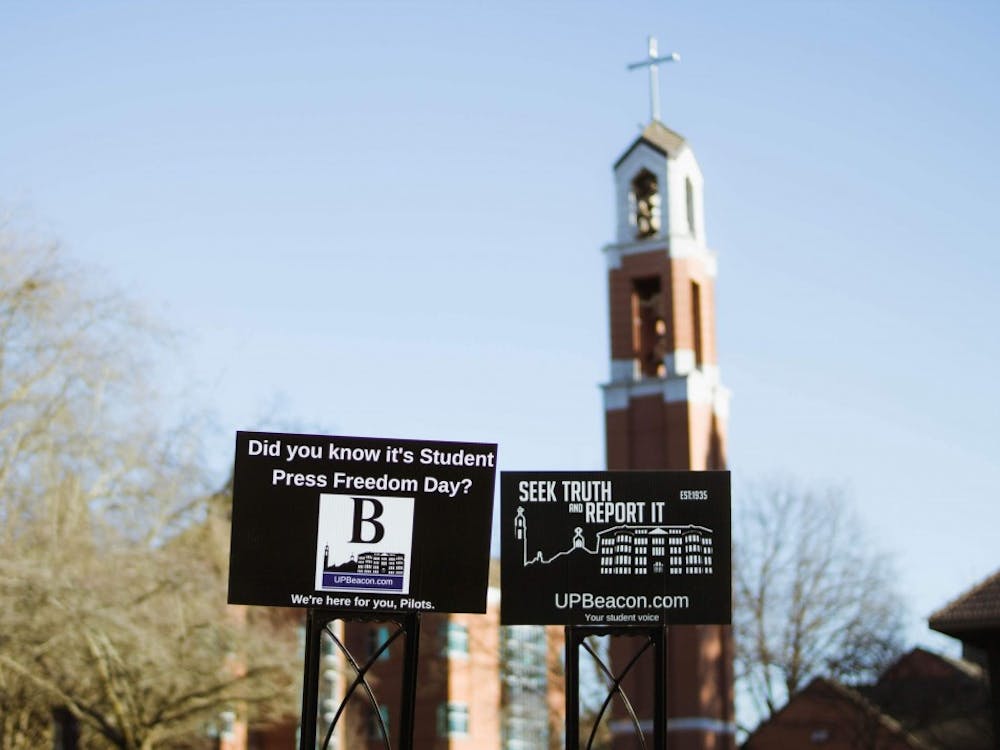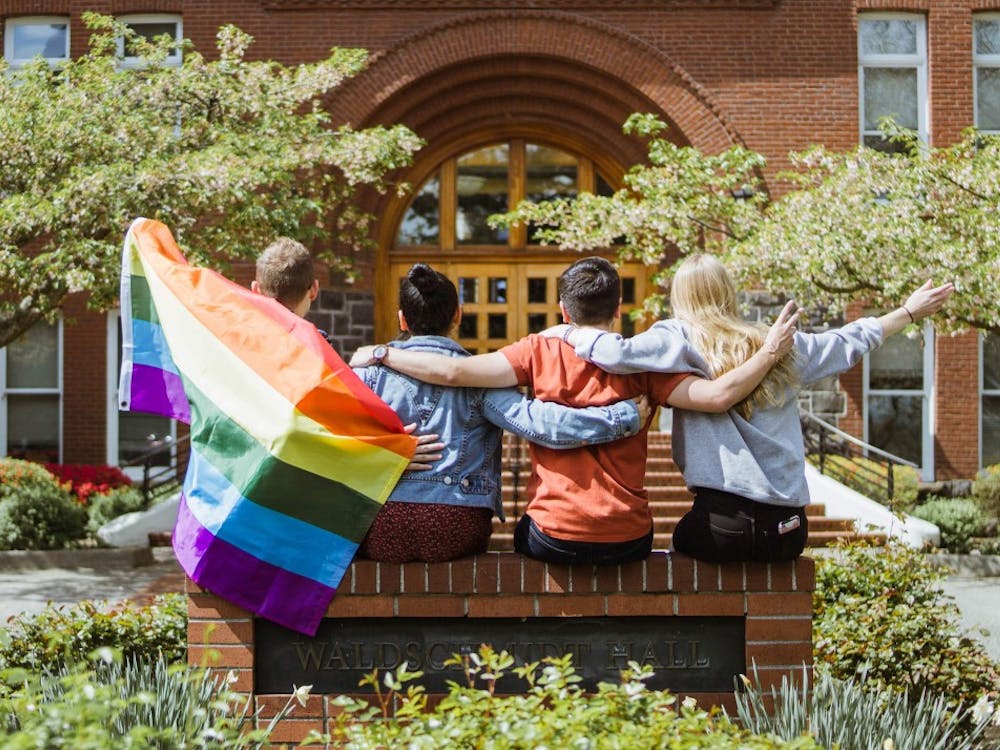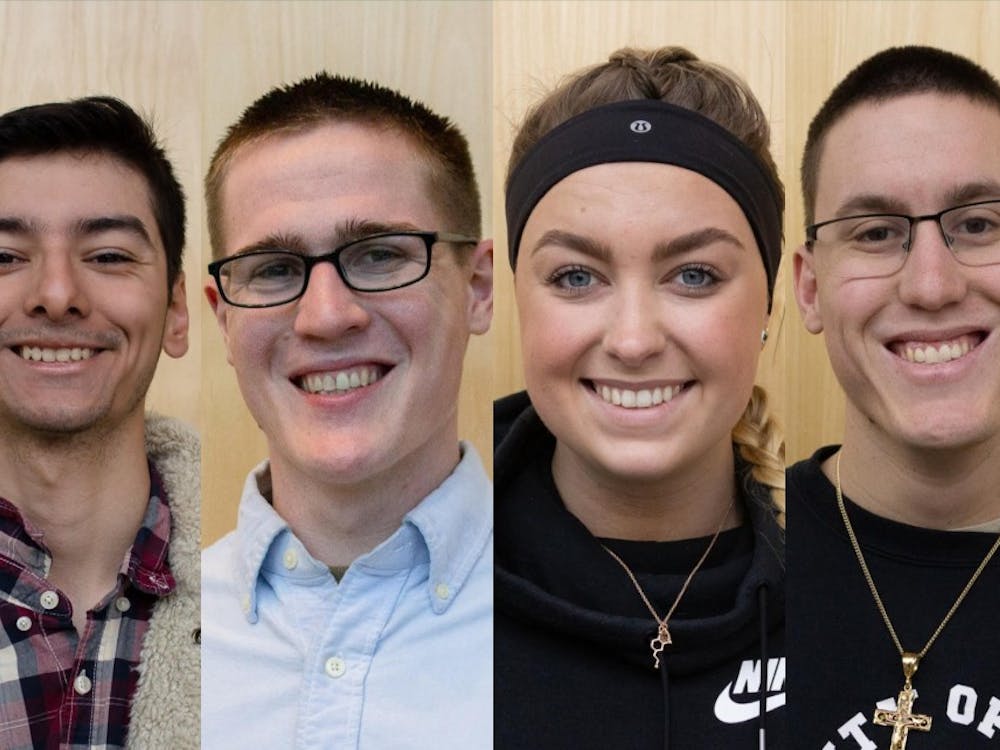It’s a more common narrative than most students realize. New freshmen arrive on campus move-in day, glance around and feel their nerves grow as they come to terms with the fact that they aren’t home anymore.
That their friends and family aren’t going to be close by. That they have to make their own way in a new place. That no one else looks like them.
Senior Natalie Avila, who grew up in Los Angeles in a Mexican-American family, noticed this when she first arrived on campus. Realizing that other students didn’t share her physical characteristics, she felt lost.
“When I came to UP, it was so different,” Avila said. “I grew up in a very cultured environment. So, I wanted to be a part of something that I could find that in.”
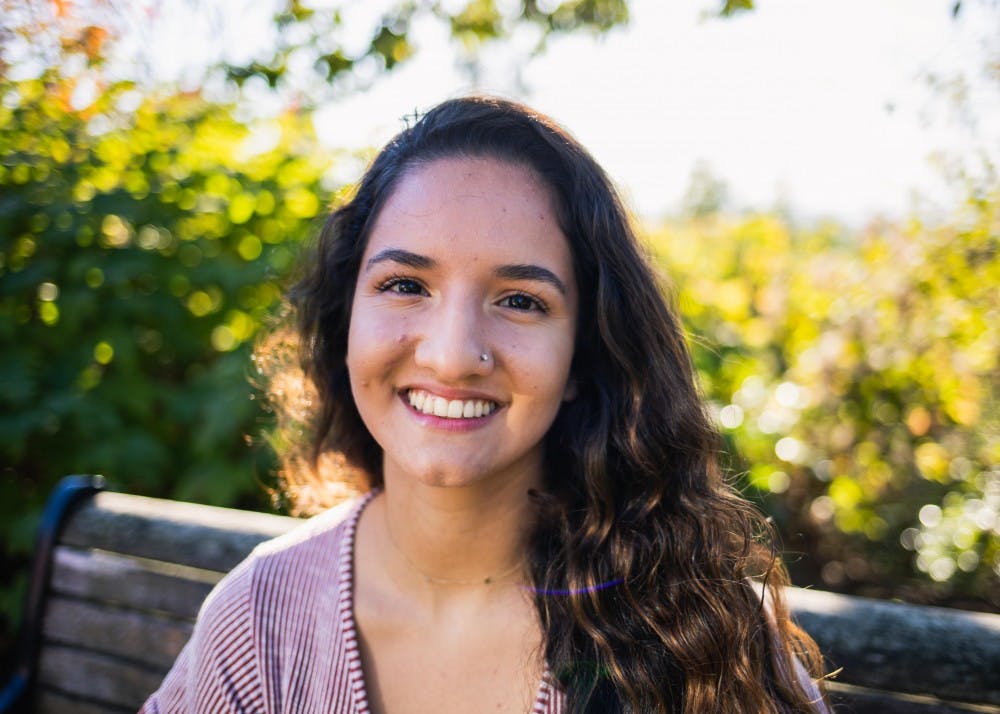
Senior Natalie Avila is one of the presidents of Latinx Student Union. After joining MEChA, she felt that the group needed to be more inclusive to all Latinx cultures since she didn't personally identify with the Chicano movement.
What she found was MEChA — Movimiento Estudiantil Chicano de Aztlán — a club for Latin American students associated with the Chicano Movement. But while she was able to make friends and meet people with similar backgrounds, MEChA wasn’t what Avila was looking for. The group wasn’t representative of the Latinx community, and Avila did not identify with the Chicano Movement.
Now, Avila is the co-president of the club along with senior Hannah Garcia, who is also of Mexican descent. The two are working to redefine MEChA, starting with changing its name to Latinx Student Union. While Sept. 15 to Oct. 15 is Hispanic Heritage Month, the club has set a goal of continuing the celebration beyond just four weeks. With the name change, the co-presidents are seeking to break with what the club used to be and bring it into what they believe it should be: a club open to students of all Latinx identities and cultural backgrounds.
“I think ‘Latinx’ just identifies inclusivity and it just makes it more of a welcoming community,” Avila said. “Just for other people to know that there is a community on campus that is able to welcome all Latinx cultures.”
Before the name change, some students believed the club to only be Mexican-American, or simply did not know what MEChA did, even mistaking it for a mechanical engineering club, according to Garcia.
After discussing it with last year’s club president, Melissa Olivera (‘19), Garcia and Avila along with the rest of the executive board presented a variety of possible names to club members, including La Casa. They decided on Latinx Student Union because it encompasses the club’s mission of inclusivity in terms of heritage, as well as sexual and gender identities.
Other student groups across the country are moving in the same direction, parting from the political movement of MEChA and moving toward a name that more accurately portrays their generation of Latin Americans. This has led to a national debate between original members of the Chicano Movement and the younger members of the Latinx community.
“My dad, when I first joined last year, was really excited that it was MEChA, and I kind of had to explain to him what ‘Latinx’ was,” Garcia said. “It is very generational … He was confused.”
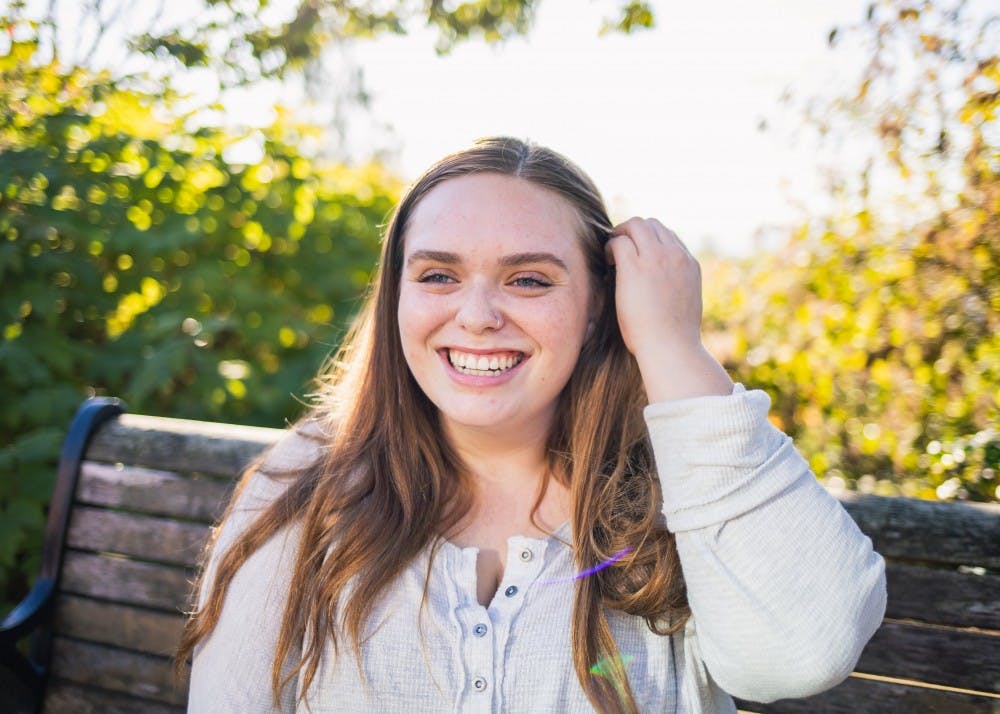
Senior Hannah Garcia is one of the presidents of Latinx Student Union. She values the community of the club and thinks it's important to create spaces that are inclusive.
Older generations struggle with the use of an “x” at the end of the word, since Spanish consists of masculine and feminine nouns.
“It’s not trying to change the language, necessarily, because you can’t,” Avila said. “But you can change how you see different people, getting to know them more and just being more aware.”
But changing the club’s name to LSU is only the first of several goals the co-presidents have for the student group. The executive board is also looking to increase social awareness among students across campus, tackling current issues such as immigration and deconstructing Latinx stereotypes.
“Right now, especially, we’re under so much turmoil, and our culture is viewed one way in people’s eyes,” Avila said. “Not all of us are bad … Not all of us are criminals.”
So far this year, LSU has hosted El Grito, celebrating Mexican Independence, as well as Spanish Karaoke at Pilots After Dark. In November, they hope to host a week of action leading up to Nov. 12, when the Supreme Court will hear DACA arguments to decide whether to keep, amend or end the immigration program. Through these events, the club shares Latin American cultures and traditions, while also bringing attention to current events.
Not only do they want to make other students aware of issues the Latinx community faces, but they also hope to attract more Latinx students to the club. That way, it can become a source of support, where Latinx students can look to others — especially first-generation students — and think ‘If they can do it, so can we.’
“It makes me feel less alone,” Garcia said. “Having a community that I can go to and be a part of is important. And it makes me really happy to go to our meetings and be around my friends.”
Cultural clubs provide a sense of family with students from similar backgrounds. LSU works to provide a feeling of home for Latinx students, while also seeking recognition for the Latinx community on campus.

Latinx Student Union is making changes this year to be more inclusive. Photo courtesy of Natalie Avila.
“There’s not a lot of Latino presence,” said club treasurer Jahayra Garcia-Sandoval. “There’s probably more out there than I would say there is because people … don’t like saying ‘I’m Latino.’ It’s kind of hidden.”
The LSU executive board members want to see recognition across campus at all levels — even amongst faculty and staff.
“As students, we have so much power to express our own views and our own cultures,” Avila said. “But it has to go past that. There has to be involvement even administratively (among) people of color.”
Ultimately, the Latinx Student Union’s presence is growing as a welcoming space where different Latin American cultures are shared, political issues are discussed, stereotypes are deconstructed and identities are celebrated throughout the academic year.
“There’s such beauty behind ‘Latinx,’” Avila said. “And there are so many people that identify with it that aren’t like how the political side sees us.”
Ana Clyde is the copy editor and a senior sports reporter at The Beacon. She can be reached at clyde20@up.edu.



